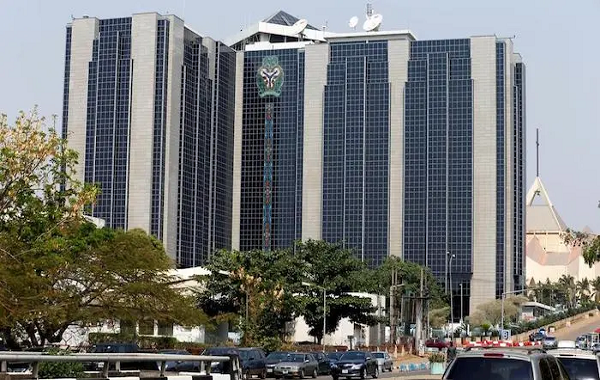
Keep up with the latest news and be part of our weekly giveaways and airtime sharing; follow our WhatsApp channel for more updates. Click to Follow us
The Central Bank of Nigeria (CBN) is working tirelessly to combat the rising inflation rate in the country. With the inflation rate increasing to 34.80 percent in December 2024, the CBN recognises the need for swift action to stabilise the economy.
To achieve price stability, the CBN is adopting an inflation targeting framework, which will replace the exchange rate targeting framework. This move is aimed at curbing inflation and stabilising the economy. According to CBN Governor, Olayemi Cardoso, “Managing disinflation amidst persistent shocks requires not only robust policies but also coordination between fiscal and monetary authorities to anchor expectations and maintain investor confidence.”
The CBN recently hosted the Monetary Policy Forum 2025, which brought together fiscal authorities, legislative, private sector, development partners, subject-matter experts, and scholars. The forum aimed to improve monetary policy communication, foster dialogue, and collaborate on critical issues shaping monetary policy. Cardoso emphasised the importance of collaboration, stating, “Our focus must remain on price stability, the planned transition to an inflation-targeting framework, and strategies to restore purchasing power and ease economic hardship.”
The CBN is also focused on strengthening the banking sector by introducing new minimum capital requirements for banks, effective March 2026. This move aims to ensure resilience and position Nigeria’s banking industry for a $1 trillion economy.
The CBN launched the Nigeria Foreign Exchange Code, which represents a binding commitment from the financial community to rebuild trust and inspire confidence. The code is built on six core principles and aims to promote integrity, fairness, transparency, and efficiency in the FX market.
Financial inclusion remains a priority for the CBN, with the Women Entrepreneurs Finance (We-FI) initiative under the National Financial Inclusion Strategy bridging the gender gap and ensuring more women have access to financial services and digital tools.
Despite the inflation surge, Nigeria’s economy remains attractive to investors. The external reserves position has grown remarkably to $40.88 billion as of November 2024, strengthening the needed buffer to mitigate unforeseen risks. The rising reserve position, alongside the relatively stable exchange rate, enhances Nigeria’s position as an attractive investment destination.
The CBN’s proactive measures to curb inflation and stabilise the economy are crucial for Nigeria’s economic growth. With the adoption of the inflation targeting framework, strengthening of the banking sector, and promotion of financial inclusion, the CBN is committed to creating an enabling environment for inclusive economic development. As Cardoso stated, “As we shift from unorthodox to orthodox monetary policy, the CBN remains committed to restoring confidence, strengthening policy credibility, and staying focused on its core mandate of price stability.”
A member of the Central Bank of Nigeria (CBN)-led Monetary Policy Committee (MPC), Bala Bello, highlighted key indicators that have kept domestic and foreign investors attracted to the domestic economy. In his personal statement during the last MPC meeting held in Abuja, he said, “The external reserves position has grown remarkably to $40.88 billion as of November 2024, from $40.06 billion at the end of October 2024.”
Bello noted that the upsurge in reserves levels strengthens the needed buffer to mitigate unforeseen risks and reinforces the importance of ongoing efforts at sustaining improved foreign exchange supply. He emphasised that the rising reserve position, alongside the relatively stable exchange rate, enhances Nigeria’s position as an attractive investment destination.
“The major prudential ratios, such as capital adequacy, liquidity, and non-performing loan ratios, were within prudential limits, reflecting proactive regulatory oversight and strong industry risk management practices,” Bello said. “Significant credit was extended to growth-enhancing sectors such as agriculture, manufacturing, and general commerce, as well as individuals and households.”
Bello disclosed that the results of stress tests showed that banks’ solvency and liquidity ratios remained resilient in scenarios of potential severe macroeconomic shocks. “Continued vigilance is, however, required to ensure that the banking system remains strong and stable amid lingering risks,” he added.
Another MPC member, Aloysius Ordu, noted that CBN staff presentations showed noteworthy green shoots since the era of tight money began. “First, there has been a marked improvement in the current account balance. Q3 2024 data shows a surplus of $6.29 billion vis-à-vis $5.14 billion in Q2 2024, and the overall balance of payment position recorded a surplus of $3.79 billion,” he said.
Ordu highlighted that the external reserves stood at $40.88 billion at the end of October 2024, a remarkable 16.9 months of import cover. “The exchange rate remained relatively stable for most of the second half of 2024, reflecting increased capital inflows on account of attractive yields,” he added.
Bandele Amoo, another member of the MPC, stated that Nigeria’s Balance of Payments (BOP) position remained stable to support the country’s external sector stability. “The BOP provisionally recorded a surplus in the 3rd Quarter of 2024 driven by positive balances in the current account and net asset acquisition positions,” he said.
Amoo noted that the overall account positively stood at $3.79 billion as of Q3 2024. “Meanwhile, portfolio inflows remain high, recording a net inflow of $0.59 billion as of November 2024,” he added.
“The total foreign exchange flows through the economy stood at $6,175 billion in September 2024 compared with $2,570.6 billion in August 2024,” Amoo said. “Furthermore, foreign reserves at the end of October 2024 stood at $39.68 billion, equivalent to several months of import cover.
Please don’t forget to “allow the notification” so you will be the first to get our gist when we publish it.
Drop your comment in the section below, and don’t forget to share the post.







